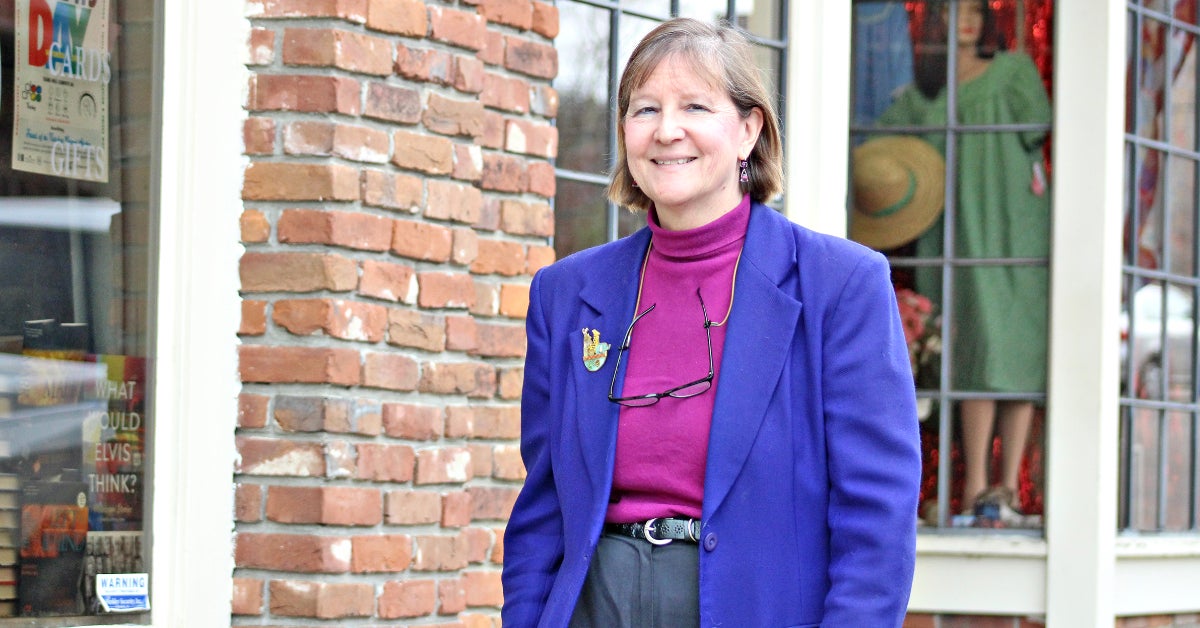The Grand Dame: Nancy Bell’s commitment to saving Vicksburg’s historic buildings
Published 3:03 pm Monday, March 21, 2022

- Nancy Bell, photographed by Ernest Bowker.
Ever since she moved to Vicksburg nearly 40 years ago, Nancy Bell has met a lot of people and made a lot of friends. Some, she even considers family.
Heck, some of them are even human.
In her role as the executive director of the Vicksburg Foundation for Historic Preservation, Bell’s job is to reach into the past to document — and then preserve — Vicksburg’s oldest buildings and the stories of those who lived in them.
It’s a role she relishes, as she saves the past for present and future generations.
“There are so many buildings that are not here that should be here. There was nobody fighting for them,” Bell said. “But a lot of it is the people. The ability to give back, to make the quality of life here better. It’s people, it’s buildings. Having that ability to get involved in all aspects of the community.”
Bell is originally from Knoxville, Tenn. She got her master’s degree in historic preservation from the University of Tennessee and was hired by the Vicksburg Foundation for Historic Preservation straight out of college in 1983.
It didn’t take long for Vicksburg to become home.
“I thought, ‘Three years and I’ll go on to somewhere else,’” she said with a chuckle. “Every time I looked for something else, they would up my salary. Then I became embedded. Once you’re involved in the community, it feels like home and you stay.”
Bell is quick to give credit to her predecessors who started the Foundation, as well as those who work alongside her, for their roles in keeping Vicksburg’s buildings alive. It’s Bell, though, who has been a constant in the equation for the past four decades.
Under Bell’s leadership, the Foundation has gotten more than 60 buildings, two cemeteries and five districts or neighborhoods placed on the National Register of Historic Places. A listing in the Register makes a building or area eligible for government funds to preserve and protect them from demolition.
Getting a building listed on the Register can take up to a year in a best-case scenario and involves painstaking research.
Bell and her team pore over old insurance records, city directories, deeds and other archival information to trace the history of buildings and their owners. Much like detectives, they hunt for clues that lead them to vital information as much as the information itself.
“I love that part. It’s so much fun to learn about everything. Often you see the families. You research one person this week and see their daughter the next week,” she said. “If you don’t like puzzles, you can’t do this. It’s not straight research.”
It’s also just the beginning of the process. A slew of paperwork follows the research, and it’s all capped off with a presentation to government officials.
“I have to defend it. So once they get it where they like it, I need to tell them why it fits the criteria. When they approve it, it’s a great day,” she said. “It is a laborious process and it’s not a given — but we’ve never had one denied.”
Vicksburg was founded in 1825, but few of its buildings are that old. Many of the oldest that have survived were built in the late 19th or early 20th century.
Since the Civil War battle that made the city famous, everything from large fires to tornadoes, and general decay and neglect, a number of factors have combined to constantly reshape Vicksburg into its modern version.
It’s made the city a living, breathing organism of its own, and Bell said she feels it when one of the old buildings is lost.
She winced a bit when talking about the 1970s urban renewal policies that razed large swaths of downtown. And when three adjoining 140-year-old buildings on Clay Street collapsed in 2006 — thankfully with no loss of human life or injuries — she said, “It was like we lost three friends.”
Bell’s passion for preserving Vicksburg’s colorful history is not limited to its oldest structures, either. She noted that as time passes, even seemingly modern buildings and neighborhoods built in the middle of the 20th century are qualifying for historic status.
“If you study architectural history, time moves on. Things that were built when I was born have now been part of that community for 63 years. They’re just as important as those 1830s buildings,” the 63-year-old Bell said.
As the third decade of the 21st century rolls on, attitudes toward preservation seem to have changed. Modern developers have shown a greater interest in refurbishing old buildings rather than tearing them down. A renewed interest in downtown living has led people to embrace the history of their homes and neighborhoods instead of opting for new construction.
The work of Bell and the Vicksburg Foundation for Historic Preservation has certainly led directly to sparing some structures from the wrecking ball. She likes to think they’ve done it indirectly as well, by changing the mindset about saving them.
“I’m very proud of the time I’ve been here,” Bell said. “We’ve had great people working on the board of directors, the people rehabbing buildings calling to ask ‘What should I do or not do?’ People are taking that lesson to heart and preserving buildings.”






